SDG4
NCKU Held an AI Forum Gathering Experts to Discuss the Role and Application of Artificial Intelligence in Higher Education
In response to the impact and opportunities presented by the wave of artificial intelligence, National Cheng Kung University (NCKU) President Meng-Ru Shen has tasked the Office of International Affairs to invite experts and scholars from various fields to hold a two-day forum titled "The Role and Application of AI in Higher Education." The first event took place today (September 10) at the Cheng-Hsing Hall on the Cheng-Hsing Campus, focusing on discussions about the role and development of AI in higher education. Over 380 faculty and students attended the forum, where experts gathered to share insights on integrating AI into teaching and exploring its limitless potential for talent development.
In his opening remarks, President Shen emphasized the importance of effectively utilizing AI tools like ChatGPT. He noted that while many students have achieved outstanding performances using AI tools, some have not correspondingly improved their practical skills. He pointed out that with the prevalence of distance learning, statistics indicate that students often fast-forward through educational materials, reflecting the need for adjustments in teaching pace and content. For educators, how to enable students to use these resources effectively is an urgent topic. Many alumni have remarked that their impression of NCKU is shaped by the earnest dedication of their teachers, a sentiment that remains unchanged even in the digital age where traditional board writing is increasingly being replaced. President Shen further stated that NCKU is one of the richest universities in Taiwan in terms of AI-related educational resources and has been convening experts in computer science and other fields since 2023 to offer more courses and tools to help faculty and students develop the competencies needed in the era of artificial intelligence.
Professor Sun-Yuan Hsieh, Chair of the Department of Computer Science and International Affairs Director, shared insights on "The Role and Development of AI in Higher Education" in the first keynote speech. He explained the principles and operations of large language models (LLMs) from a popular science perspective, discussing issues such as information accuracy, safety, and the resulting digital divide. He also offered several viewpoints on effectively using LLMs and summarized key global AI development points based on the AI Index Report 2024. Additionally, he introduced trends in AI research and talent cultivation at renowned universities in Europe, Asia, and America based on QS rankings.
Professor Wen-Yu Su from the Department of Computer Science presented on "AI's Mixed Pot," sharing his experiences in creating AI tool models across various disciplines, including materials, politics, design, and medicine. He vividly demonstrated AI applications in different fields and how these experiences inspired him and his team to develop a learning software specifically designed for children. As the founder of the "Program the World Association" (PTWA), he teaches children in rural areas to use various software and write programs, aiming to bridge the urban-rural gap through AI.
The topic "Teaching Applications of AI Platforms" was presented by Associate Professor Che-Wei Lin from the College of Medicine, who discussed how to integrate real-time AI demonstrations, virtual collaborative design, and medical and genomic analysis into university courses. He also mentioned collaborations with leading tech company NVIDIA in biomedical research, illustrating NVIDIA's comprehensive ecosystem and showcasing examples of module applications and their impact on AI development.
The afternoon's comprehensive discussion sessions continued from the morning's keynotes, led by Jhy-Wei Shin, Director of the Center for Continuing Education, who shared recent digital education achievements such as workshops on AI technology integration into digital teaching materials and lectures on the intersection of big data and AI. Professor Chih-Chia Huang from the Department of Photonics discussed how emerging technologies can be used as teaching tools to cultivate students' practical and problem-solving skills. Professor Wu Chia-ching from the Department of Anatomy shared how virtual and augmented reality (VR/AR) can be applied in teaching anatomy and surgical practice, also discussing AI's capabilities in automatically assessing wound healing. Yu-Cheng Zhang, Director of the Digital Education Research Institute, examined the impact of AI on the labor market from a public sector perspective, discussing empowerment through AI and practical initiatives such as creating a digital talent database and generative AI competency certification. Professor Cheng-Te Li from the Department of Computer Science shared insights on "Trustworthy AI for Promoting Social Welfare." The discussion session was moderated by Professor Shyh-Hau Wang from the Department of Computer Science, with contributions from Professors Jenn-Jier Lien and Wei-Ta Chu from the same department, and Professor Jen-Wei Huang from the Department of Electrical Engineering. The event concluded with closing remarks from Associate Professor Jian-Zhong Qu, summarizing the day's activities.
The second forum on the role and application of AI in higher education will take place on September 18 in the conference hall on the basement level of the library at the Cheng-Kung Campus, focusing on AI applications in aesthetics and performing arts, as well as the fairness of large language models. Faculty, students, staff, and educators from universities nationwide are welcome to register and participate in the discussion of emerging AI topics.
Second Forum: The Role and Application of AI in Higher Education
- Date: September 18, 2024 (Wednesday)
- Location: Conference Hall, B1, NCKU Library, Cheng-Kung Campus
- Registration Links: [Morning Session] [Afternoon Session]
In his opening remarks, President Shen emphasized the importance of effectively utilizing AI tools like ChatGPT. He noted that while many students have achieved outstanding performances using AI tools, some have not correspondingly improved their practical skills. He pointed out that with the prevalence of distance learning, statistics indicate that students often fast-forward through educational materials, reflecting the need for adjustments in teaching pace and content. For educators, how to enable students to use these resources effectively is an urgent topic. Many alumni have remarked that their impression of NCKU is shaped by the earnest dedication of their teachers, a sentiment that remains unchanged even in the digital age where traditional board writing is increasingly being replaced. President Shen further stated that NCKU is one of the richest universities in Taiwan in terms of AI-related educational resources and has been convening experts in computer science and other fields since 2023 to offer more courses and tools to help faculty and students develop the competencies needed in the era of artificial intelligence.
Professor Sun-Yuan Hsieh, Chair of the Department of Computer Science and International Affairs Director, shared insights on "The Role and Development of AI in Higher Education" in the first keynote speech. He explained the principles and operations of large language models (LLMs) from a popular science perspective, discussing issues such as information accuracy, safety, and the resulting digital divide. He also offered several viewpoints on effectively using LLMs and summarized key global AI development points based on the AI Index Report 2024. Additionally, he introduced trends in AI research and talent cultivation at renowned universities in Europe, Asia, and America based on QS rankings.
Professor Wen-Yu Su from the Department of Computer Science presented on "AI's Mixed Pot," sharing his experiences in creating AI tool models across various disciplines, including materials, politics, design, and medicine. He vividly demonstrated AI applications in different fields and how these experiences inspired him and his team to develop a learning software specifically designed for children. As the founder of the "Program the World Association" (PTWA), he teaches children in rural areas to use various software and write programs, aiming to bridge the urban-rural gap through AI.
The topic "Teaching Applications of AI Platforms" was presented by Associate Professor Che-Wei Lin from the College of Medicine, who discussed how to integrate real-time AI demonstrations, virtual collaborative design, and medical and genomic analysis into university courses. He also mentioned collaborations with leading tech company NVIDIA in biomedical research, illustrating NVIDIA's comprehensive ecosystem and showcasing examples of module applications and their impact on AI development.
The afternoon's comprehensive discussion sessions continued from the morning's keynotes, led by Jhy-Wei Shin, Director of the Center for Continuing Education, who shared recent digital education achievements such as workshops on AI technology integration into digital teaching materials and lectures on the intersection of big data and AI. Professor Chih-Chia Huang from the Department of Photonics discussed how emerging technologies can be used as teaching tools to cultivate students' practical and problem-solving skills. Professor Wu Chia-ching from the Department of Anatomy shared how virtual and augmented reality (VR/AR) can be applied in teaching anatomy and surgical practice, also discussing AI's capabilities in automatically assessing wound healing. Yu-Cheng Zhang, Director of the Digital Education Research Institute, examined the impact of AI on the labor market from a public sector perspective, discussing empowerment through AI and practical initiatives such as creating a digital talent database and generative AI competency certification. Professor Cheng-Te Li from the Department of Computer Science shared insights on "Trustworthy AI for Promoting Social Welfare." The discussion session was moderated by Professor Shyh-Hau Wang from the Department of Computer Science, with contributions from Professors Jenn-Jier Lien and Wei-Ta Chu from the same department, and Professor Jen-Wei Huang from the Department of Electrical Engineering. The event concluded with closing remarks from Associate Professor Jian-Zhong Qu, summarizing the day's activities.
The second forum on the role and application of AI in higher education will take place on September 18 in the conference hall on the basement level of the library at the Cheng-Kung Campus, focusing on AI applications in aesthetics and performing arts, as well as the fairness of large language models. Faculty, students, staff, and educators from universities nationwide are welcome to register and participate in the discussion of emerging AI topics.
Second Forum: The Role and Application of AI in Higher Education
- Date: September 18, 2024 (Wednesday)
- Location: Conference Hall, B1, NCKU Library, Cheng-Kung Campus
- Registration Links: [Morning Session] [Afternoon Session]
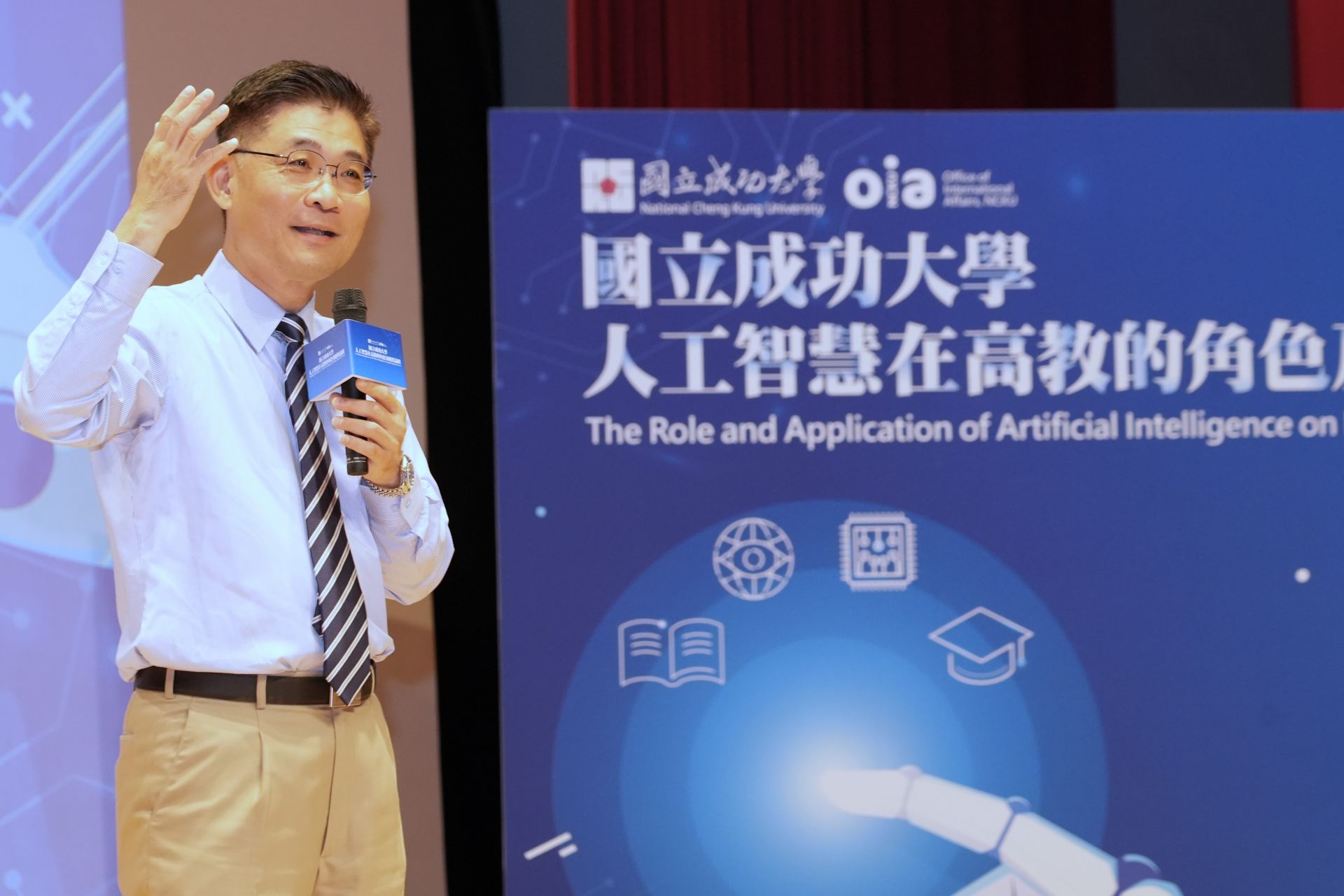
During his speech, President Meng-Ru Shen emphasized the importance of effectively utilizing ChatGPT tools.
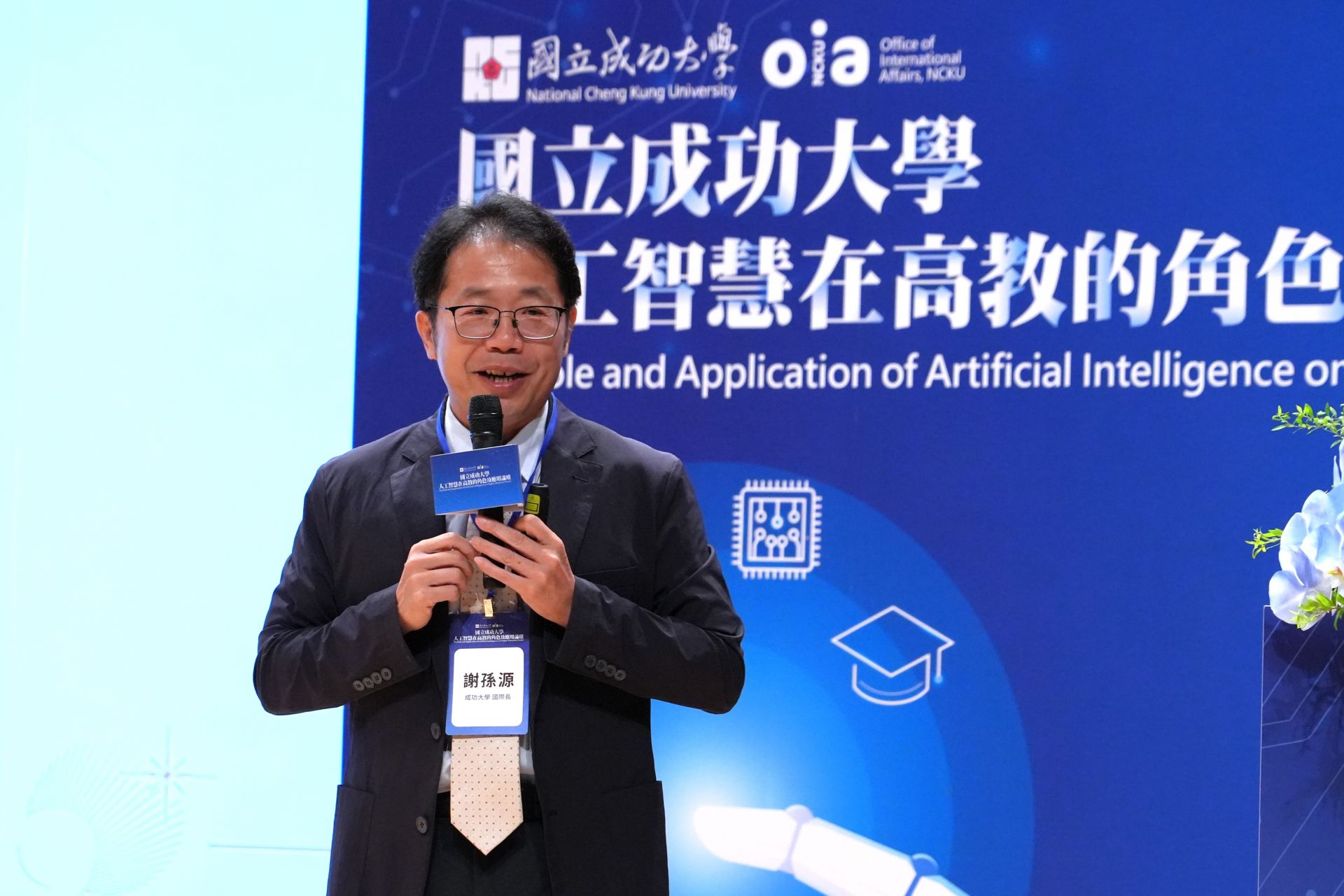
NCKU's Chair Professor of Computer Science and International Affairs, Dr. Sun-Yuan Hsieh, presented on "The Role and Development of AI in Higher Education Worldwide."
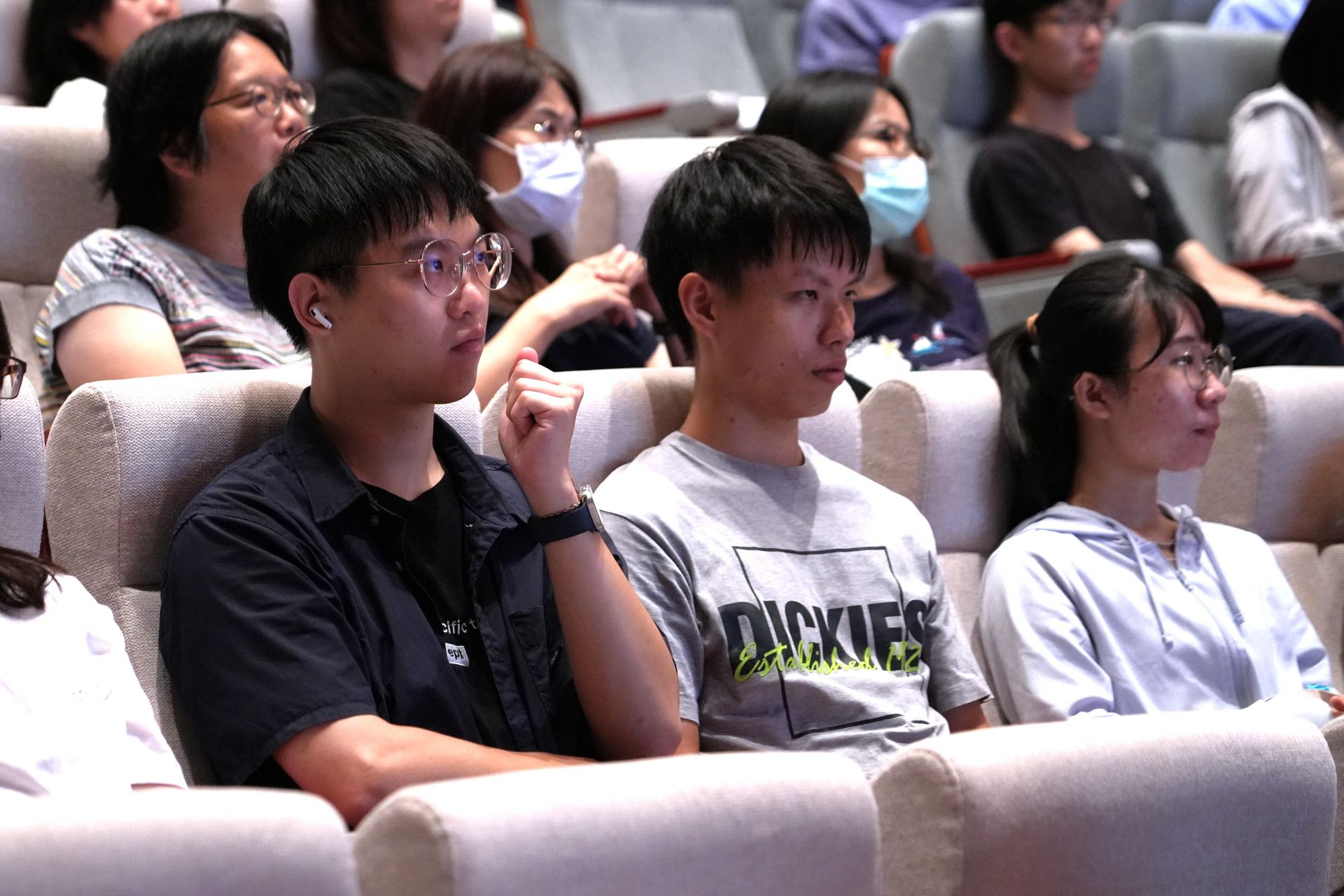
The first AI forum at NCKU attracted over 380 faculty and students to participate.
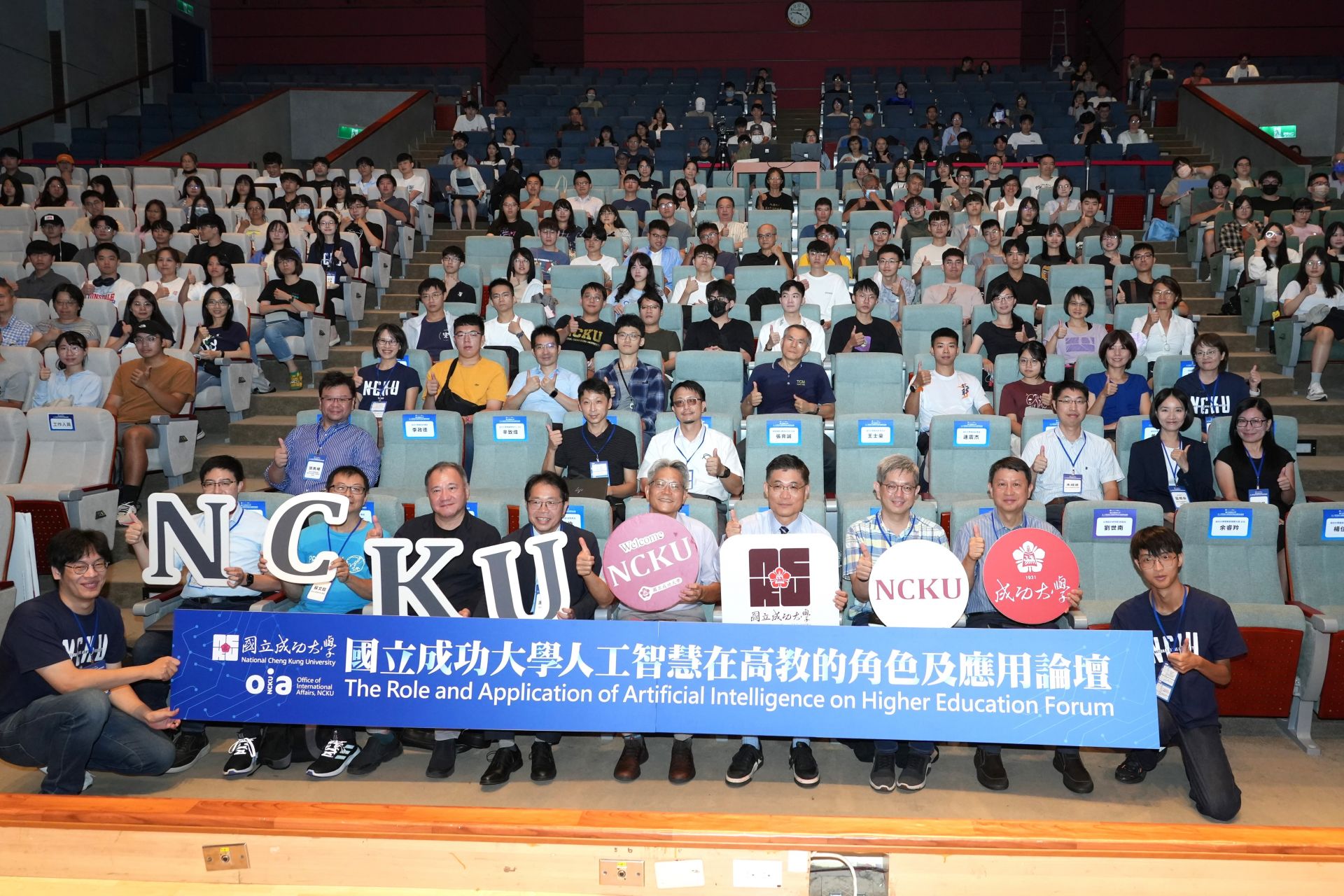
The First Forum on the Role and Application of AI in Higher Education Gathers Experts to Discuss AI's Role and Applications in Higher Education
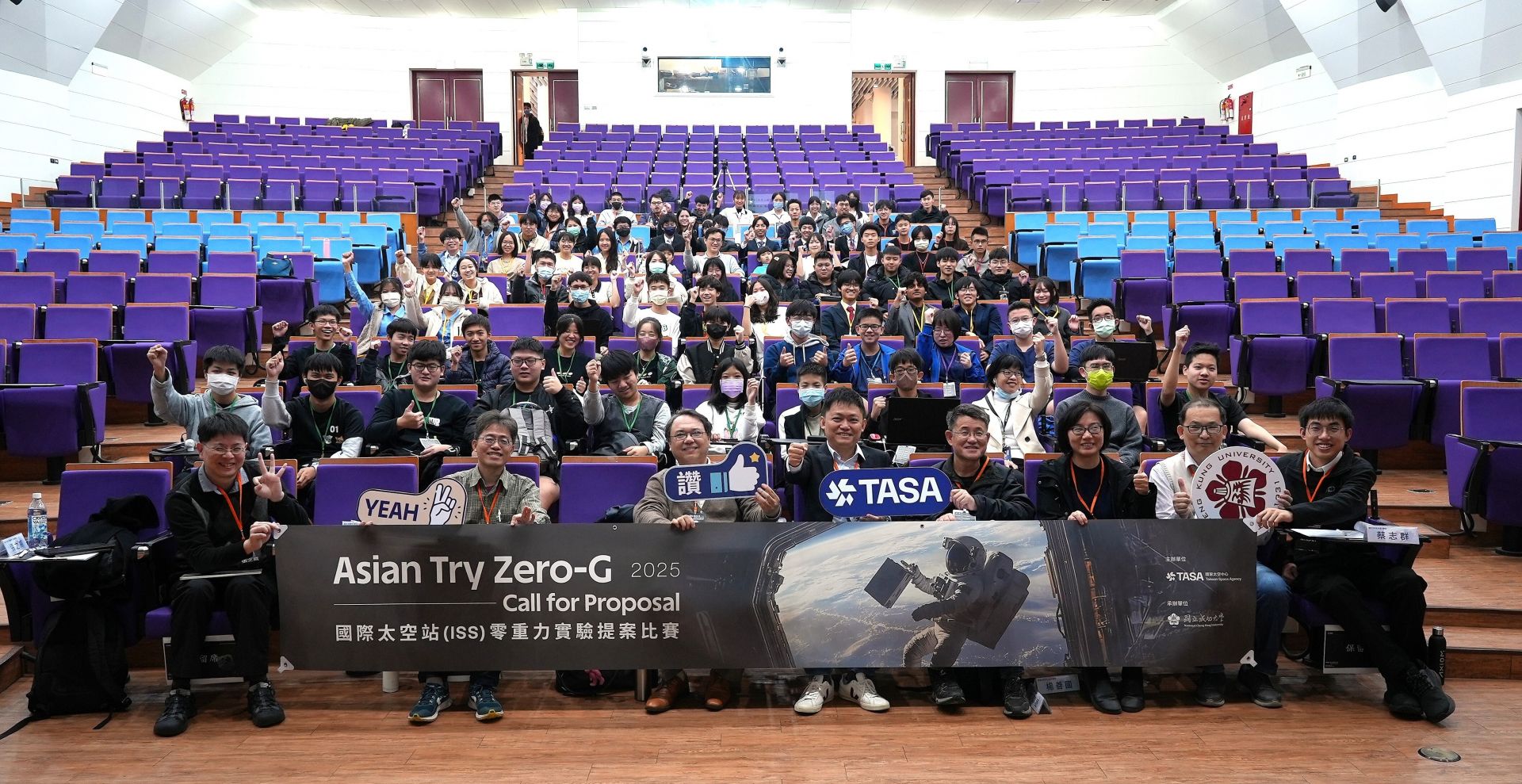
SDG4The Taiwan Regional Preliminary Selection for the Asian Try Zero-G Experiment Inspires Students to Explore Space
View more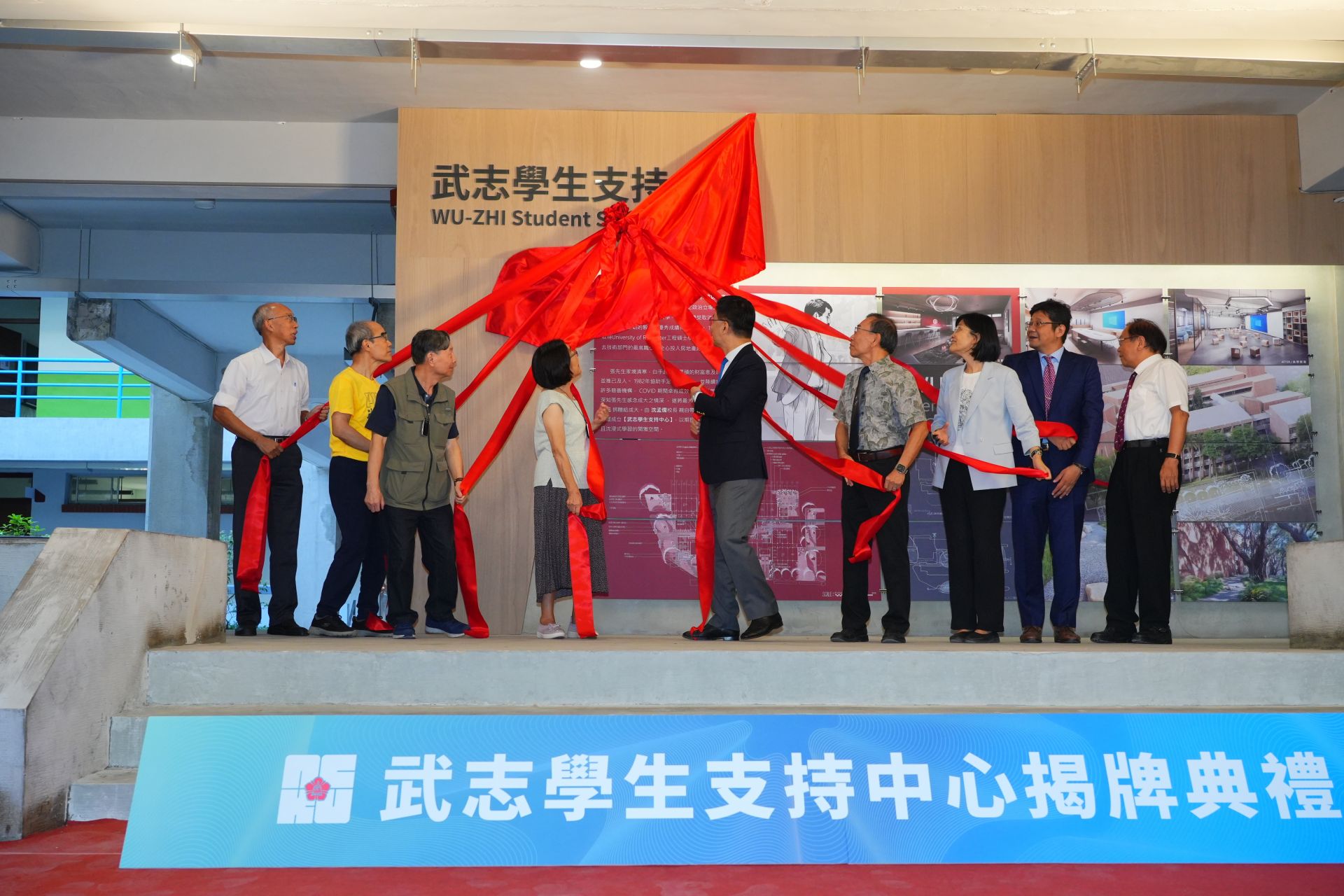
SDG4NCKU has established the "Wu Zhi Student Support Center" in memory of alumnus Wu Zhi Zhang, focusing on life education
View more



















